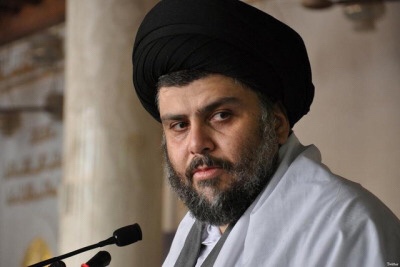 The U.S. Can’t Afford to Ignore Iraq
The U.S. Can’t Afford to Ignore IraqJULY 2 2018
Iraq has largely disappeared from the headlines, and gets little rhetorical attention from the Trump administration. But its increasing domination by Iran, the growing presence of al-Qaeda within its borders, and the possibility of a resurgent Islamic State (IS) all pose a threat to American interest. The May elections seem to have worsened these problems, as the editors of the Weekly Standard write:
On May 19, Moqtada al-Sadr’s Sairoon alliance won 54 of the Iraqi parliament’s 329 seats—the most of any single political faction. Sadr, as readers will remember from the long years of the Iraq war, led a militia called the Mahdi Army that carried out suicide bombings and other attacks against coalition forces. As recently as January 2016, his soldiers kidnapped three American contractors and held them for more than a month. He is now one of Iraq’s most popular politician-clerics.
Sadr is being joined by the staunchly pro-Iran Fatah party, led by Hadi al-Amiri, which won 47 seats. . . . The members of Iraq’s Fatah are anti-American fanatics. The faction of [the incumbent prime minister] Haider al-Abadi, whose Victory party controls another 42 seats, has also joined Sadr and Amiri. If [the former prime minister] Nouri al-Maliki follows, as is predicted, Sadr’s coalition will have a parliamentary majority—168 seats—and a devoted enemy of the United States will take control of Iraq’s government.
Turnout was poor in the May election. The results are contested, and a partial recount is underway. On June 10, further reducing confidence in the election results, a ballot-box storage facility housing some half of Baghdad’s ballots caught fire. Abadi claimed foul play. . . . No matter the az of that fight, the alliance between Sadr and Amiri confirms the extent of Iran’s influence on Iraqi politics. Amiri once led a fanatically pro-Iranian militant group called the Badr Brigade, and he fought on Iran’s side in the Iran-Iraq War of the 1980s. As recently as 2013 he was openly expressing loyalty to Qassem Soleimani, now the head of Iran’s Revolutionary Guard. . . .
[In short], a sometime terrorist is likely to take the premiership, his coalition partners are sympathetic to Iran’s expansionism, and the country is again a breeding ground for both an allegedly vanquished IS and a thriving al-Qaeda. . . . If Iraq fails, America’s enemies in the Middle East will have doubled or tripled their strength. Donald Trump may wish to ignore Iraq. But if the president believes his own rhetoric about the threats from Iran, and if he’s serious about defeating jihadists in the region, he’d be wise to resist that temptation.
No comments:
Post a Comment